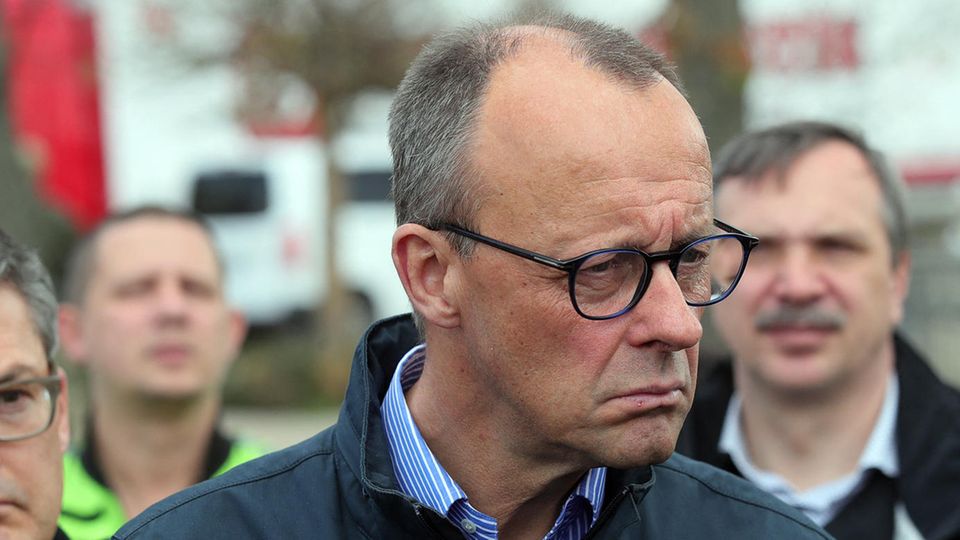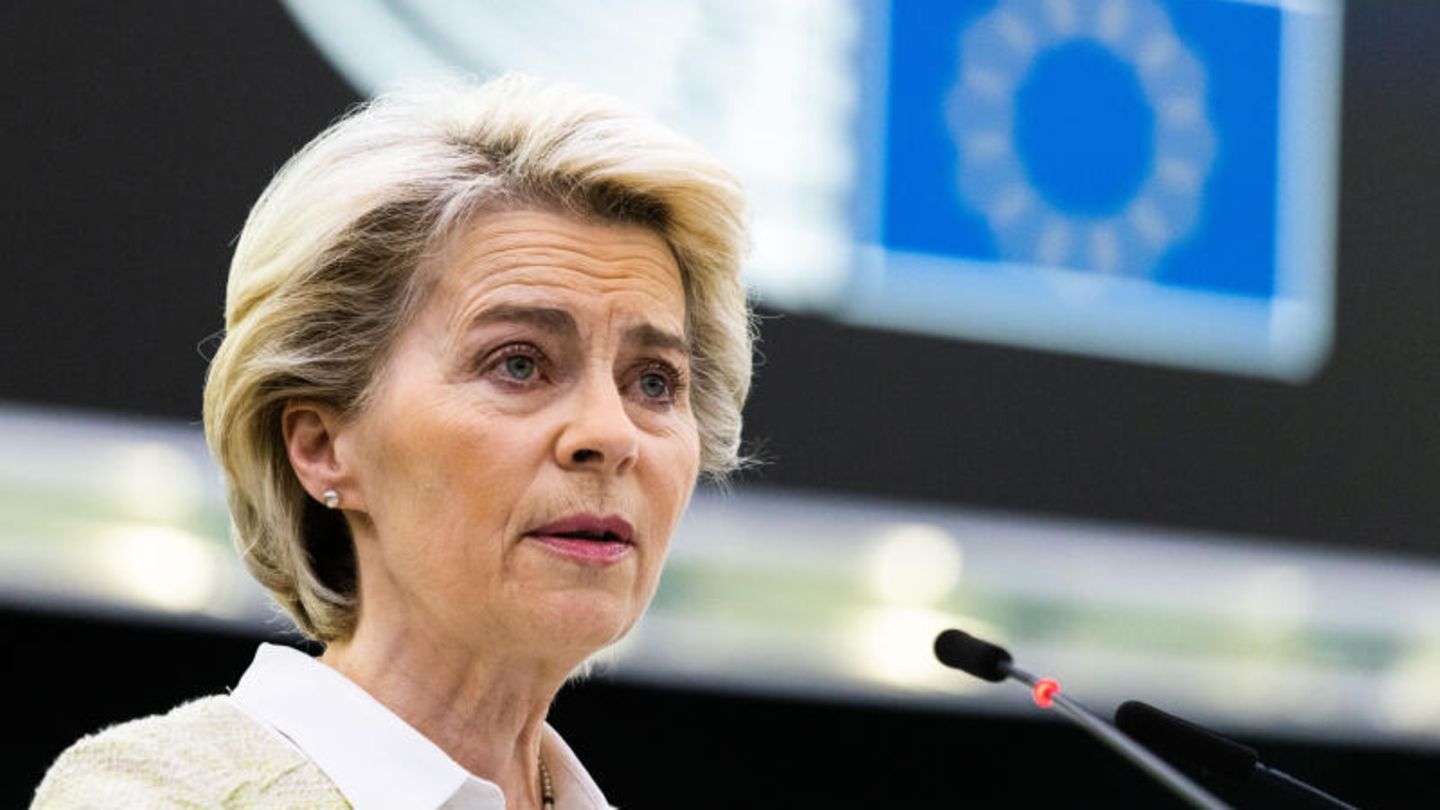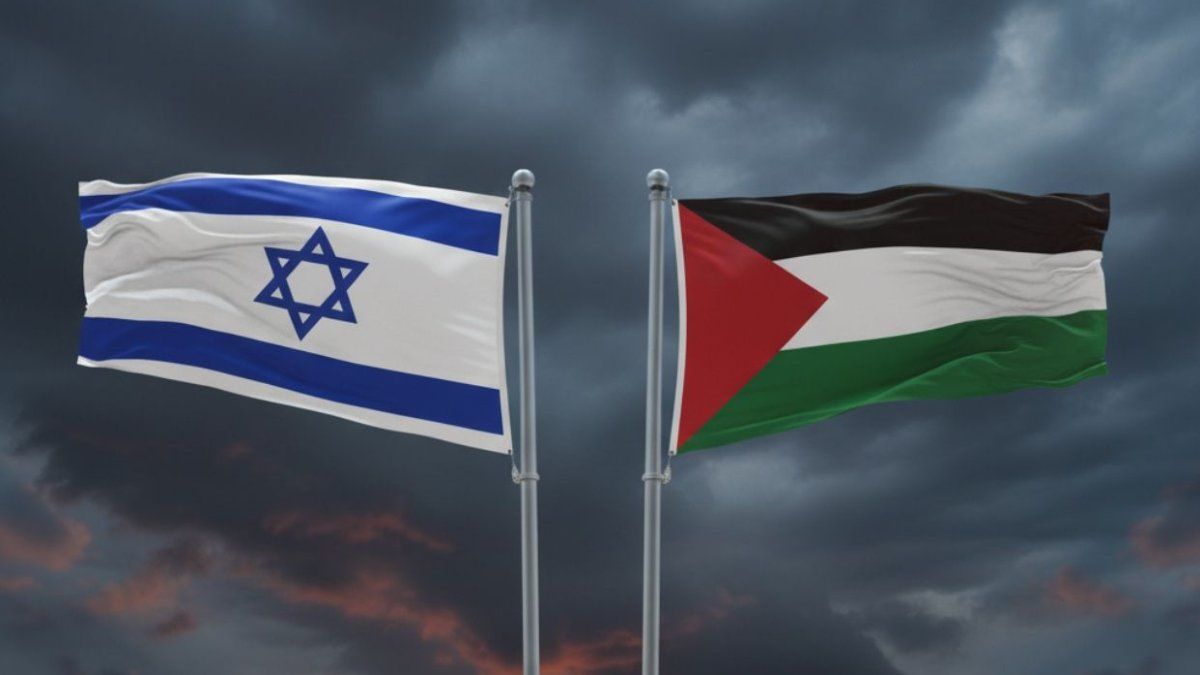The West is again increasing the economic pressure on Russia, Chancellor Scholz is defending his line when it comes to arms deliveries, Russia is specifically attacking railway lines – day 70 in the Ukraine war at a glance.
Aid for Kyiv, penalties for Moscow: After ten weeks of war in Ukraine, the West is again increasing the economic pressure on Russia. EU Commission chief Ursula von der Leyen proposed an import ban on Russian oil on Wednesday, which could cost Moscow billions. US President Joe Biden was also open to new punitive measures. Chancellor Olaf Scholz (SPD) promised Ukraine further military aid. A rapprochement of the war opponents in negotiations is not in sight. Scholz also wants to continue talking to Russian President Vladimir Putin.
To block arms shipments: Russia specifically attacks railway lines
In the Ukrainian war zone, Russia targeted railway lines to slow down arms shipments from the West. Both Ukraine and Russia reported heavy rocket fire on train stations and other facilities. According to the Russian Ministry of Defense, these routes are used to transport weapons and ammunition from the United States and European countries to Ukrainian troops in Donbass. According to data on Wednesday, the Russian army has launched a total of 77 aerial attacks on Ukraine in one day, killing up to 310 Ukrainian fighters.
Defense Minister Sergei Shoigu spoke of territorial gains in the eastern Ukrainian separatist regions of Luhansk and Donetsk. Western experts, on the other hand, consider the Russian offensive there to be rather sluggish. The information provided by the warring parties cannot usually be verified independently.
On behalf of Ukraine, Presidential Office chief Andriy Yermak stated on Telegram that the attacks on railway systems did not stop the supply of armaments. “It all matters.” President Volodymyr Zelenskyj rated the rocket attacks as Moscow’s weakness. He reported rockets falling on the cities of Lviv, Vinnytsia and Odessa, the Kiev region and the Dnipro region.
Fierce fighting also broke out again around the Azovstal steelworks in the port city of Mariupol, which had been besieged by Russian troops. Nevertheless, Shoigu held out the prospect of further evacuations of civilians. “We continue these experiments.” The Ukrainian side is also hoping for a new evacuation campaign. Most recently, more than 150 people escaped from the steel mill. Hundreds are said to remain in it.
No rapprochement between Moscow and Kyiv in sight
Kremlin spokesman Dmitry Peskov accused Ukraine of being to blame for the lack of movement in negotiations for a peace solution. One can “hardly speak of dynamics, on the contrary,” said Peskow, according to the Interfax agency.
President Zelenskyy insists on red lines for a negotiated solution, including a return to territorial integrity in internationally recognized borders. At an event hosted by the Wall Street Journal, Zelenskyy said that Russian troops had to withdraw. In addition, Putin must agree to a ceasefire, as publicly as possible. Moscow, on the other hand, is demanding that Crimea, which was annexed in 2014, be recognized as Russian and that the separatist regions of Donetsk and Luhansk should be independent.
Chancellor Scholz said in Berlin that his previous talks with the Presidents of Ukraine and Russia had been correct. “And of course I will continue.” But one should not have any illusions. Putin’s direction is still misleading. “A dictated peace will not work.” Russia should immediately silence the guns.

Scholz is still not planning a visit to Kyiv
After a cabinet meeting in Meseberg, Scholz defended his line on arms deliveries. Armaments from Bundeswehr stocks had been delivered and it was being looked at what was still possible. According to Defense Minister Christine Lambrecht (also SPD), the delivery of heavy artillery pieces is also being examined. It is probably about seven German tank howitzers 2000.
Despite the promises of help, Scholz still sees obstacles to a trip to Kyiv – even though opposition leader Friedrich Merz (CDU) was even received there by President Selenskyj. Scholz criticizes the fact that the Ukrainian leadership did not want to receive Federal President Frank-Walter Steinmeier in April. “And that’s in the room,” said the Chancellor. During a visit to Romania, Steinmeier himself was still willing to talk to Zelenskyy and emphasized: “We Germans support Ukraine with all our hearts.” An international donors’ conference is scheduled for Thursday in Poland to raise money for humanitarian aid to Ukraine.
Russian patriarch Kirill ends up on the EU sanctions list
In the EU Parliament in Strasbourg, Commission President von der Leyen also promised Ukraine help for reconstruction. The focus there, however, was the EU’s new package of sanctions against Moscow, the sixth since the beginning of the war. The proposed embargo on Russian oil is due to take effect in six months. In eight months, the import of oil products should also end.
Negotiations between the 27 EU countries will now follow. It is also about exceptions for countries like Hungary and Slovakia, which are very dependent on Russian oil. Germany now considers an import ban with a transitional period to be manageable. The sanctions package is also aimed at Russian state media and those responsible for war crimes. Even the Russian Orthodox Church leader, Patriarch Kirill, is said to be on the sanctions list. In addition, Sberbank and two other large banks are to be decoupled from the international system Swift.
US President Biden said in Washington that he would talk to the G7 countries about further possible punitive measures this week. “We are always open to additional sanctions,” he said. The G7 group includes the USA, Canada, France, Great Britain, Italy, Germany and Japan.
The Kremlin reacted cautiously to the EU plans and emphasized that the sanctions package had not yet been decided. “We’re observing that, we’re calculating a large number of options,” said Peskow.
Source: Stern
David William is a talented author who has made a name for himself in the world of writing. He is a professional author who writes on a wide range of topics, from general interest to opinion news. David is currently working as a writer at 24 hours worlds where he brings his unique perspective and in-depth research to his articles, making them both informative and engaging.




